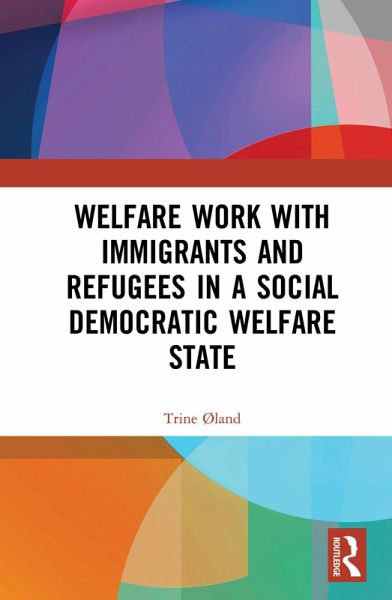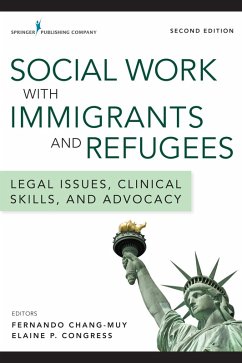
Welfare Work with Immigrants and Refugees in a Social Democratic Welfare State (eBook, ePUB)
Versandkostenfrei!
Sofort per Download lieferbar
39,95 €
inkl. MwSt.
Weitere Ausgaben:

PAYBACK Punkte
20 °P sammeln!
Welfare Work with Immigrants and Refugees in a Social Democratic Welfare State provides an ambiguous yet disturbing portrait of the inner workings of the Danish welfare state and its implications in a context of globalisation and migration.Through a sociological interview-study with welfare workers, this book describes how processes of othering are undercurrents of welfare work. The processes construct immigrants and refugees as a kind of people who are not only culturally different but also behind, deficient and weak, and thus assigned the potential to benefit from welfare work. These process...
Welfare Work with Immigrants and Refugees in a Social Democratic Welfare State provides an ambiguous yet disturbing portrait of the inner workings of the Danish welfare state and its implications in a context of globalisation and migration.
Through a sociological interview-study with welfare workers, this book describes how processes of othering are undercurrents of welfare work. The processes construct immigrants and refugees as a kind of people who are not only culturally different but also behind, deficient and weak, and thus assigned the potential to benefit from welfare work. These processes are designated to advance a racial welfare dynamic of remedial circularity which keeps the immigrant and refugee on the threshold of modern living and democracy. It is thus depicted how welfare work is intertwined not with a biological framework but with a cultural framework naturalising and ontologising cultural differences. The book examines how welfare work tends to appreciate immigrants and refugees as dislocated people with a cultural lack and how it abides by the dictums of civilising expansions and humanitarian imperialism within the modern state.
This book will be useful for every scholar who wants to reconsider and think differently about how the welfare state is going to proceed in a global society.
Through a sociological interview-study with welfare workers, this book describes how processes of othering are undercurrents of welfare work. The processes construct immigrants and refugees as a kind of people who are not only culturally different but also behind, deficient and weak, and thus assigned the potential to benefit from welfare work. These processes are designated to advance a racial welfare dynamic of remedial circularity which keeps the immigrant and refugee on the threshold of modern living and democracy. It is thus depicted how welfare work is intertwined not with a biological framework but with a cultural framework naturalising and ontologising cultural differences. The book examines how welfare work tends to appreciate immigrants and refugees as dislocated people with a cultural lack and how it abides by the dictums of civilising expansions and humanitarian imperialism within the modern state.
This book will be useful for every scholar who wants to reconsider and think differently about how the welfare state is going to proceed in a global society.
Dieser Download kann aus rechtlichen Gründen nur mit Rechnungsadresse in A, B, BG, CY, CZ, D, DK, EW, E, FIN, F, GR, HR, H, IRL, I, LT, L, LR, M, NL, PL, P, R, S, SLO, SK ausgeliefert werden.













